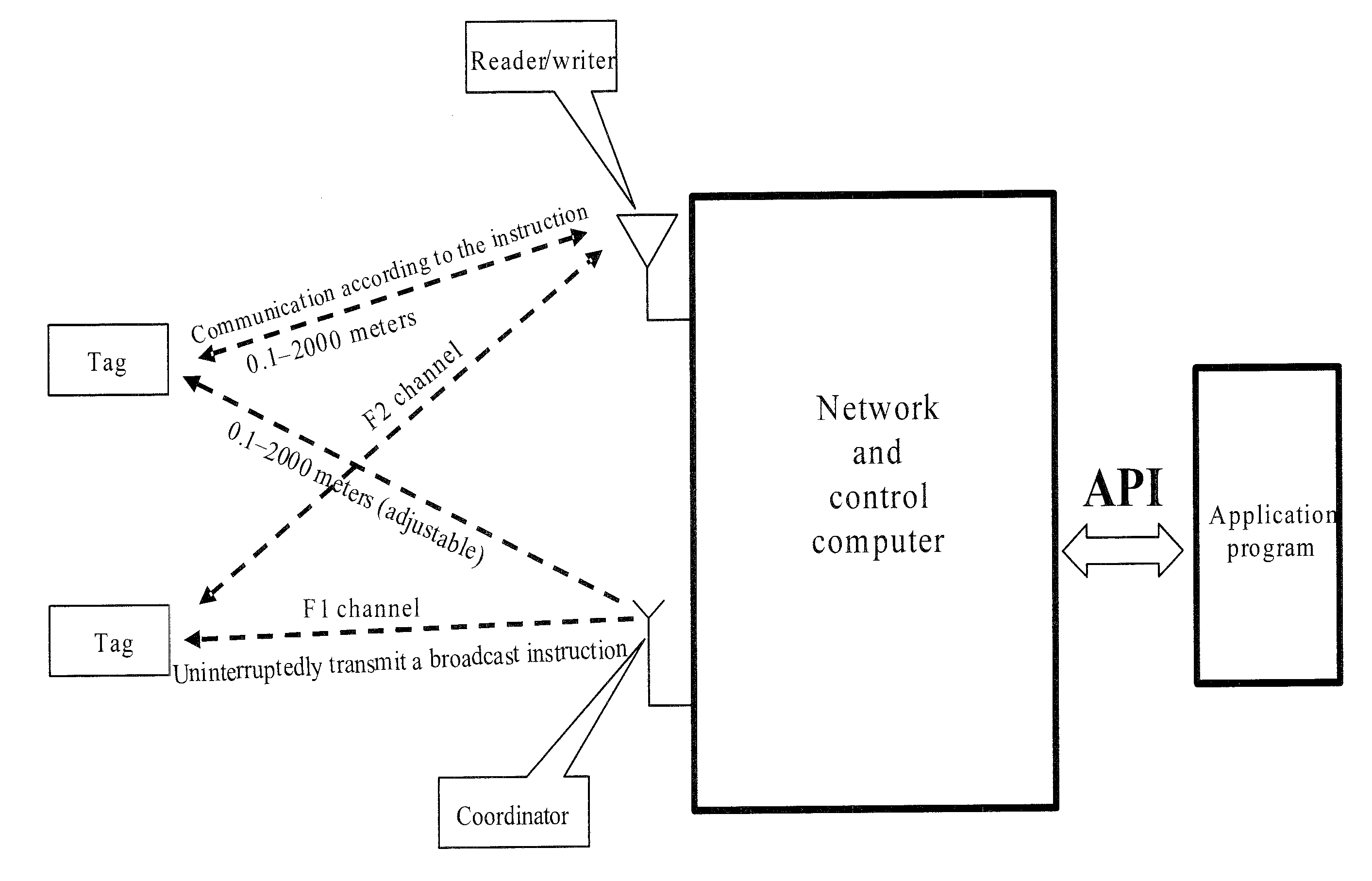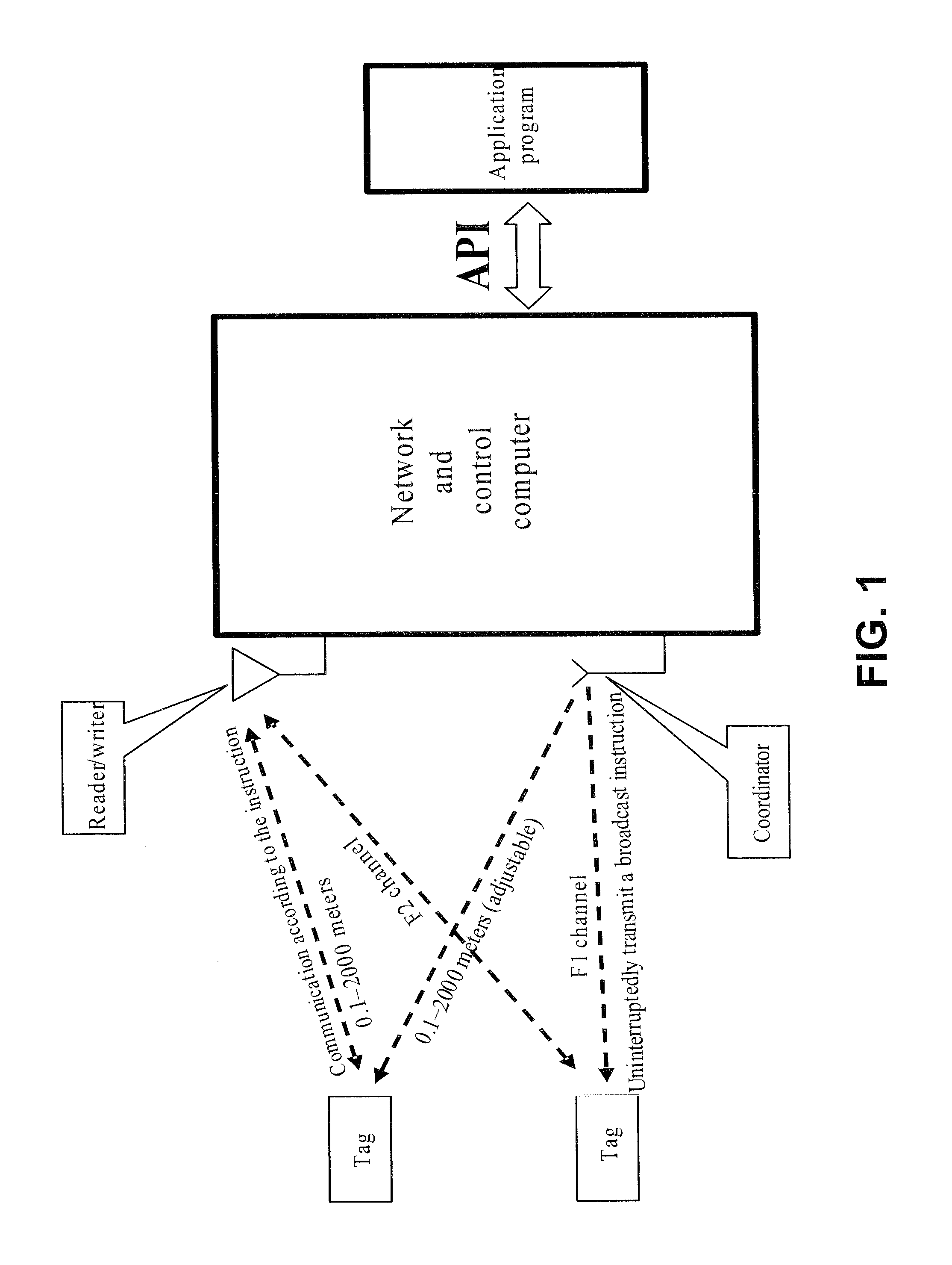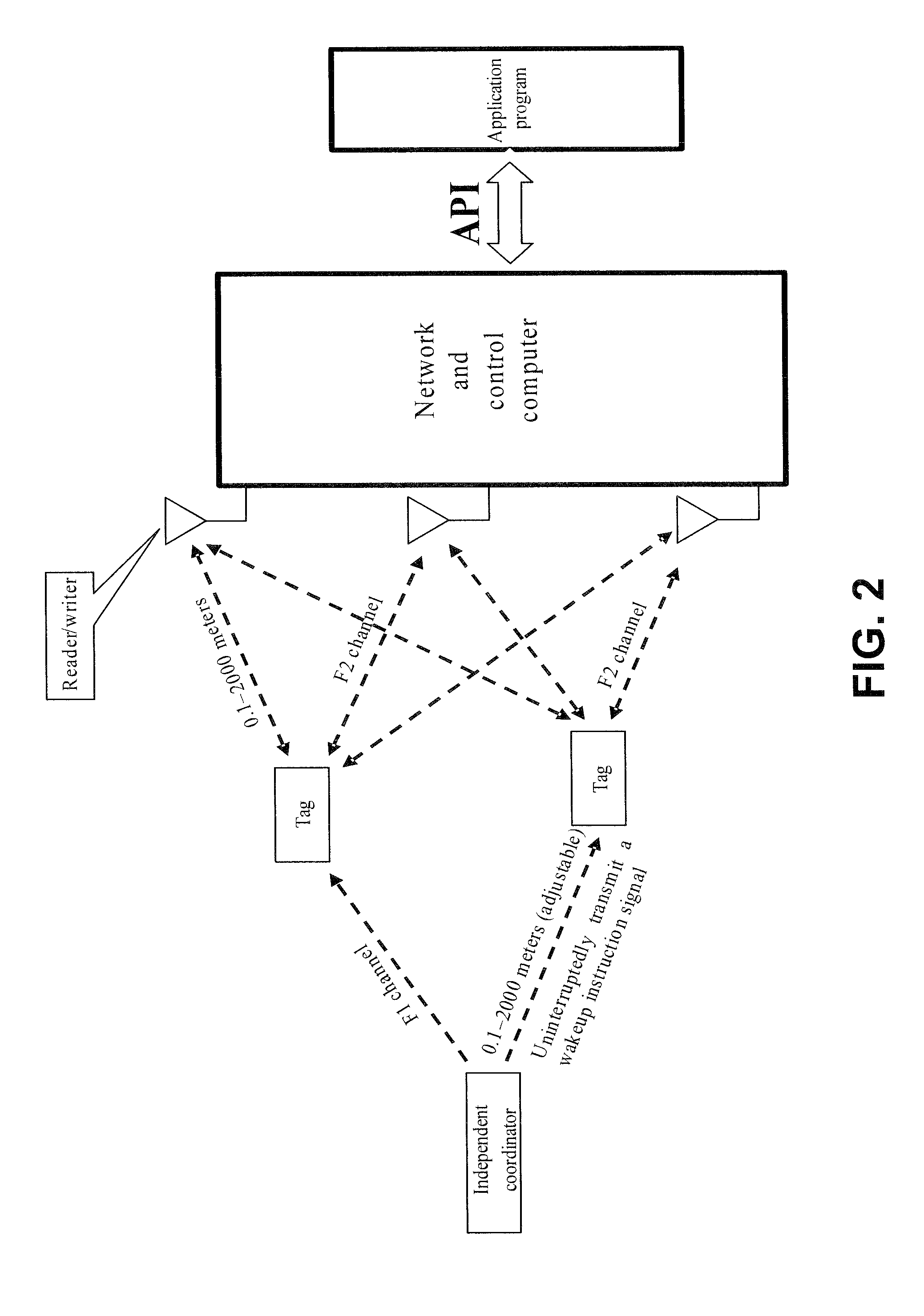Active RFID tag, application system and method thereof
a technology of active radio frequency identification and application system, which is applied in the field of information transmission technologies, can solve the problems of electromagnetic pollution to the environment, prolong the life cycle of the battery, and reduce the working time of the system, and achieves the effects of low power consumption of the active rfid tag, simple implementation, and low cos
- Summary
- Abstract
- Description
- Claims
- Application Information
AI Technical Summary
Benefits of technology
Problems solved by technology
Method used
Image
Examples
first embodiment
[0054]Firstly, the first embodiment discloses a system for applying an active RFID tag. As shown in FIG. 1 and FIG. 2, the system includes: a control processor (i.e., the network and control computer shown in FIG. 1 and FIG. 2); a coordinator, configured to uninterruptedly and repeatedly transmit an instruction signal for a preset time period on a first channel; an active RFID tag, configured to receive the instruction signal during the time period of an interception state (the interception state shown in FIG. 3; when the active RFID tag, for saving the electric power, adopts the working mode where the periodical dormant mode is adopted, and the lower power consumption is intercepted by the active RFID tag in the instant of wakeup; the time period of the interception state refers to the instant for intercepting signals after the active RFID tag wakes up; the length of this time period depends on the time required for the active RFID tag to exclude the invalid signals or receive the ...
second embodiment
[0098]The following further describes the present invention according to FIG. 5 in combination with FIG. 7 and FIG. 8.
[0099]Step S602: A coordinator, independently or under the control of a control processor, uninterruptedly and repeatedly transmits a wakeup signal on a wakeup channel. Step S604: An active RFID tag receives the wakeup signal during the time period of an interception state. Step S606: A reader / writer establishes communication with the active RFID tag on a second channel. Step S608: The active RFID tag receives the action instruction index from the reader / writer, and searches out the action instruction corresponding to the action instruction index from a preset index-action mapping relationship and executes the action instruction.
[0100]The wakeup signal includes information such as an address code, the sequence number of a task, and parameters of the task. The active RFID tag may identify the wakeup signal by using the address code, invoke (or query), by using the seq...
PUM
 Login to View More
Login to View More Abstract
Description
Claims
Application Information
 Login to View More
Login to View More - R&D
- Intellectual Property
- Life Sciences
- Materials
- Tech Scout
- Unparalleled Data Quality
- Higher Quality Content
- 60% Fewer Hallucinations
Browse by: Latest US Patents, China's latest patents, Technical Efficacy Thesaurus, Application Domain, Technology Topic, Popular Technical Reports.
© 2025 PatSnap. All rights reserved.Legal|Privacy policy|Modern Slavery Act Transparency Statement|Sitemap|About US| Contact US: help@patsnap.com



